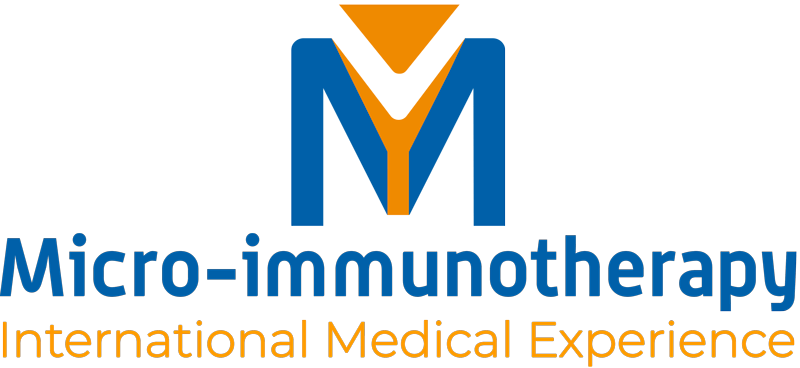Summary of the content:
1. Acute vs. Chronic Inflammation
3. New Avenues for Sustainable Inflammation Management: Micro-immunotherapy
(If you click on it, you will go directly to that part of the post)
Inflammation is a pivotal biological process, inherently designed to protect the body from harm. It activates in response to infections, injuries, and foreign substances. Understanding the complexities and dual roles of inflammation is fundamental, as it plays both protective and potentially damaging roles in the body. Cytokine networks orchestrate the immune response and determine whether inflammation resolves or becomes chronic, giving rise to a wide range of diseases. Keep reading to learn more about inflammation and why micro-immunotherapy stands out as a smart and innovative solution to sustainably regulate it.
Acute vs. Chronic Inflammation
Acute inflammation is the body’s immediate and beneficial response to harmful stimuli, such as pathogens and tissue damage. In this state, inflammation serves as a friend, a rapid and essential reaction designed to eradicate the initial cause of cell injury, clear out necrotic cells and tissues, and establish a repair mechanism. Clinically, this involves an increase in blood flow, capillary dilation, leukocyte (white blood cells) infiltration, and the release of inflammatory mediators. These processes are finely tuned, providing a controlled environment for the swift elimination of threats and subsequent healing of tissue.
Cytokines, proteins that serve as signaling molecules, orchestrate these processes and ensure the response is robust yet localised. As healing progresses, anti-inflammatory cytokines begin to dominate, helping to dampen the inflammatory response and mediating tissue repair.
Nevertheless, this protective mechanism can become detrimental when inflammation transitions from an acute to a chronic state. Chronic inflammation is characterised by a prolonged and inappropriate immune response. Unlike its acute counterpart, chronic inflammation persists over long periods —weeks, months, or even years—and this persistent activation of the immune system leads to progressive tissue damage. It arises from various factors, including persistent infections, prolonged exposure to irritants, and harmful lifestyle factors (e.g. malnutrition, sedentary lifestyle, chronic stress)
Cytokines Sing the Blues
The transition from beneficial to harmful inflammation is a result of complex interactions within the immune system, prominently featuring cytokines. Cytokines are small proteins released by cells, serving as essential communicators in the immune response. They operate within a vast network where specific cytokines promote inflammatory responses while others work to resolve and attenuate inflammation. Key pro-inflammatory cytokines include tumor necrosis factor-alpha (TNF-alpha), interleukin-1 beta (IL-1beta), and interleukin-6 (IL-6), each playing crucial roles in amplifying the inflammatory response. These molecules increase vascular permeability, stimulate the production of acute-phase proteins, and recruit additional immune cells to the site of injury or infection.
However, in chronic inflammation, there is often a dysregulation of cytokine networks. An overproduction of pro-inflammatory cytokines, combined with insufficient production of anti-inflammatory cytokines such as interleukin-10 (IL-10) and transforming growth factor-beta (TGF-beta), creates a self-perpetuating inflammatory environment. This imbalance contributes to the pathogenesis of numerous chronic diseases, including rheumatoid arthritis, inflammatory bowel disease, cardiovascular disease, diabetes, and various forms of cancer.
Biological Factors Involved in Chronic Inflammation

Imbalance of Cytokine Networks: Inflammation is tightly regulated through a network of cytokines. While acute inflammation involves a burst of pro-inflammatory cytokines like TNF-alpha, IL-1beta, and IL-6, the resolution phase requires a shift towards anti-inflammatory cytokines such as IL-10 and TGF-beta. A failure to transition from a pro-inflammatory to an anti-inflammatory state can lead to chronicity. Persistent overproduction of pro-inflammatory cytokines not only sustains inflammation but also impairs the regenerative processes, leading to tissue damage and fibrosis.

Persistent Activation of Immune Cells: Chronic inflammation often involves the continued activation of immune cells such as macrophages. These cells, when persistently activated, produce a continuous supply of reactive oxygen species (ROS) and cytokines, perpetuating the inflammatory response. Additionally, they can present antigens that sustain an adaptive immune response, further prolonging the inflammatory state.

Failure of Resolution Pathways: The resolution of inflammation is an active process that involves lipid mediators called resolvins, protectins, and lipoxins, which promote the cessation of inflammation and healing. Dysregulation or inadequate production of these molecules can result in the failure to resolve inflammation, making it chronic.
New Avenues for Sustainable Inflammation Management: Micro-immunotherapy
The need for effective management of chronic inflammation is clear, and while traditional treatments like nonsteroidal anti-inflammatory drugs (NSAIDs) and corticosteroids offer symptom relief, they often do not address underlying immune dysregulation and can be associated with significant side effects.
micro-immunotherapy offers a novel approach that addresses the root causes of chronic inflammation through the fine-tuning of the immune response. By working at the molecular level to restore balance to dysregulated cytokine networks, micro-immunotherapy targets the specific pathways involved in chronicity. This novel treatment modality utilises sequential compositions of low doses of immune mediators (mostly cytokines) to modulate the immune response gently, enhancing regulatory pathways and promoting resolution over sustained inflammation. Micro-immunotherapy harnesses these mediators in a manner that mirrors the body’s natural immune signaling, promoting regulation rather than suppression or overactivation of the immune response.
Due to the low dosages, micro-immunotherapy presents with a reduced risk of side effects, offering a sustainable and patient-friendly option for long-term treatment of chronic inflammatory conditions. This personalised approach aligns with the broader movement towards precision medicine, wherein treatments are tailored to the particular needs of the patient, taking into account their unique immunological makeup and disease pathology.
